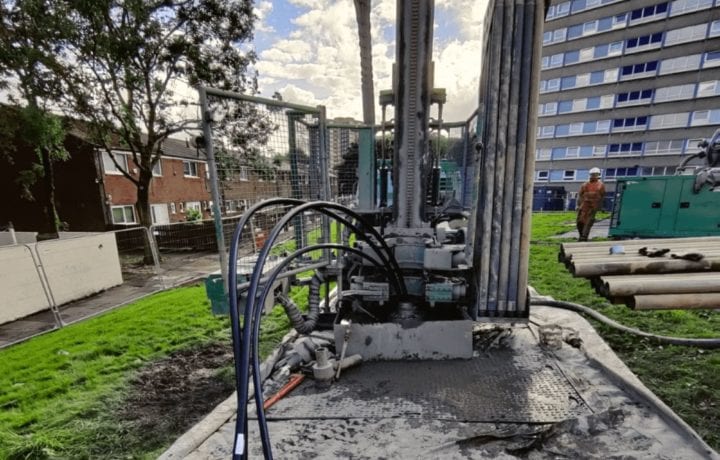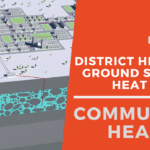Summary: Kensa is testing medium-depth boreholes for the installation of ground source heat pumps in Daisyfield tower blocks. Going 300m below ground, the boreholes differ from the standard depths of 100-230m for this type of project. The deeper boreholes could save space in urban locations and reduce drilling rig mobilisation costs.
Read the full blog at kensaheatpumps.com
- Deeper boreholes, which Kensa terms ‘medium-depth boreholes’, could open up ground source opportunities for properties in urban locations with limited land area.
- There are many advantages to deeper borehole installs – including extra energy absorption and saving time versus shallower borehole depths.
- Medium-depth boreholes can only improve low-carbon district heating, which is commonly installed in high-populated areas with limited space for boreholes.





